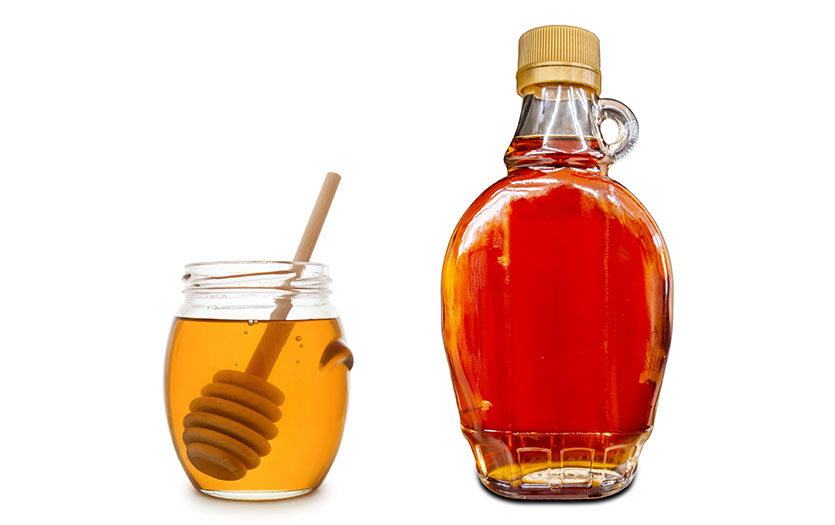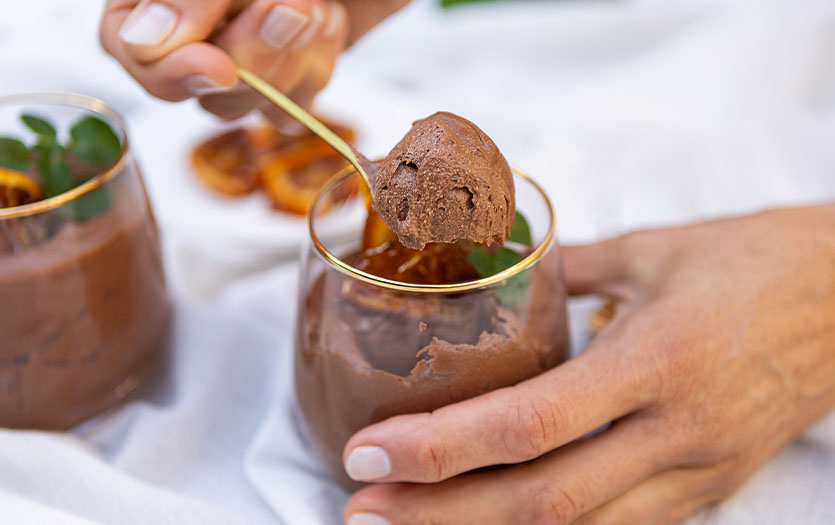
This post was written by Lydia Conner, RDN, LD, community outreach dietitian, Parkview Health.
For many people, coffee is more than just coffee. It’s a daily ritual, a hug in a mug, an expression of creativity, an excuse to catch up with a loved one or kindling to jumpstart a busy day. Coffee can play a positive role in our lives and offers some health benefits. But there are also important health considerations, like caffeine level and sweeteners, to keep in mind when choosing how to enjoy your daily cup.
Coffee’s health benefits
Coffee beans are full of antioxidants like hydrocinnamic acids and polyphenols. These substances have a role in protecting our cells from damage from our environment, which may help to reduce our risk of cancer and other chronic diseases. Coffee is thought to be one of the biggest sources of antioxidants in the Western diet; however, these antioxidants are different than the ones we get from food. Therefore, coffee should not replace our intake of antioxidant-rich plant foods such as fruits, vegetables, herbs and spices.
Considerations for coffee consumption
The brew method
The way coffee is brewed makes a difference in the health risks it imposes. For example, unfiltered coffees such as French press, boiled coffee and Turkish coffee, are higher in fat-soluble compounds (cafestol and kahweol) found to raise total cholesterol and LDL cholesterol in humans. On the other hand, filtered, percolated and instant coffee are much lower in these compounds (1).
Not a meal replacement
Coffee does not count as breakfast! When consuming black coffee instead of food, you might feel energetic or alert, but these feelings come from caffeine’s stimulant effect that increases dopamine in our brains. Black coffee contains only about 2.4 calories per cup, which means that it provides essentially no energy for the body’s cells. Food provides us with energy from carbohydrates, fat and protein, along with the vitamins and minerals that help our body to function. So, opting for a healthy breakfast alongside your coffee will better fuel for your body for the day ahead.
Watch for added sugar
Vanilla simple syrup contains about 19 grams of sugar for every 2 tablespoon serving (2 tablespoons = 4 pumps, the standard Grande syrup allotment). For reference, the American Heart Association recommends no more than 25 grams of added sugar for women and no more than 36 grams of added sugar for men per day (2). Additionally, large amounts of sugar/syrup added to craft coffee beverages (think your favorite fall or winter seasonal drink) can spike your blood sugar and leave you feeling a “crash” in energy soon after. Having a snack with protein or heart-healthy fats with your beverage can slow down our digestion of the sugar and lead to better, sustained energy. When you feel tired or low in energy, instead of seeing those feelings as a cry for more caffeine, see it as a call to nourish yourself and instead get some fresh air, drink some water, or get a change in scenery.
Watch your caffeine intake
It’s important to keep an eye on your caffeine consumption. Did you know that the roast level of the coffee affects the caffeine level? It’s true—the darker the roast, the less caffeine there is. So, you might want to opt for a light roast in the morning and a dark roast later in the day.
According to the Dietary Guidelines for Americans, “For healthy adults, the FDA has cited 400 milligrams per day of caffeine as an amount not generally associated with dangerous, negative effects” (3). For pregnant women, 300 mg or less of caffeine per day is considered safe (3), but women should consult their healthcare providers for advice on daily caffeine consumption. Some people find that caffeine causes adverse effects, such as anxiety, gastrointestinal distress, lack of sleep, and more, so do what is right for your body.
Additionally, caffeine is a diuretic, which means it can lead to more frequent urination. However, it doesn’t seem to increase the risk of dehydration. If you notice an increased need to urinate after drinking coffee, switching to decaffeinated coffee is believed to provide the same nutritional benefits with little to no caffeine. Remember, in general, water is the best option to stay hydrated.
Overall, coffee can be a part of healthy diet and bring a bit of joy to our days, but it affects each of us differently, so we should all choose wisely the type we drink or if we drink it at all.
If you have nutrition-related goals in mind but aren’t sure where to start, ask your primary care provider for a referral to see a dietitian in the outpatient setting. We hold regular Ask the Dietitian sessions through the Center for Healthy Living. Visit the calendar of Classes and Events on parkview.com.
Sources



